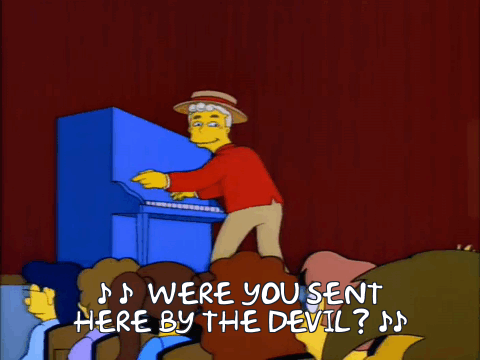In all the dioceses of the United States of America, January 22 (or 23rd, when the 22nd falls on a Sunday. like it did last year) shall be observed as a particular day of prayer for the full restoration of the legal guarantee of the right to life and of penance for violations to the dignity of the human person committed through acts of abortion.
Morality precedes law. God gave commands to Adam and Eve, Abraham and Sarah, even Moses himself before actually writing them down for Moses in the desert. God may write the laws on our hearts, but we’re a literate and democratic society. We tend to believe what is written down as law is what was chosen by the society as a whole.1
That’s why, regardless of what any individual chooses to do, we must also hope, pray, and advocate for ending the legal killing of babies in the womb. The law distorts too many people’s views otherwise. But it’s also worth trying to change minds outside of the law, as well.
Reading 1
2 Sm 5:1-7, 10
All the tribes of Israel came to David in Hebron and said: "Here we are, your bone and your flesh. In days past, when Saul was our king, it was you who led the children of Israel out and brought them back. And the LORD said to you, 'You shall shepherd my people Israel and shall be commander of Israel.'"
When all the elders of Israel came to David in Hebron, King David made an agreement with them there before the LORD, and they anointed him king of Israel. David was thirty years old when he became king, and he reigned for forty years: seven years and six months in Hebron over Judah, and thirty-three years in Jerusalem over all Israel and Judah.
Then the king and his men set out for Jerusalem against the Jebusites who inhabited the region. David was told, "You cannot enter here: the blind and the lame will drive you away!" which was their way of saying, "David cannot enter here."
But David did take the stronghold of Zion, which is the City of David. David grew steadily more powerful, for the LORD of hosts was with him.
The Jebusites, who had controlled the city, were so confident in their defenses that even the handicapped, blind and lame, could keep David and his army at bay. That obviously didn’t work out for them.
Interestingly, Matthew takes the unique phrase “the blind and the lame,” and applies to the story of Jesus cleansing the Temple.2 There, the handicapped approach the Son of David, and He heals them rather than conquers them, because Jesus is the Lord of Life, not death.
Responsorial Psalm
PS 89:20, 21-22, 25-26
R. My faithfulness and my mercy shall be with him.
Once you spoke in a vision,
and to your faithful ones you said:
“On a champion I have placed a crown;
over the people I have set a youth.”
R. My faithfulness and my mercy shall be with him.
“I have found David, my servant;
with my holy oil I have anointed him,
That my hand may be always with him,
and that my arm may make him strong.”
R. My faithfulness and my mercy shall be with him.
“My faithfulness and my mercy shall be with him,
and through my name shall his horn be exalted.
I will set his hand upon the sea,
his right hand upon the rivers.”
R. My faithfulness and my mercy shall be with him.
This passage recounts David’s ascension to the throne. Remember last Saturday, we learned that David physically received the crown after Saul’s death, but that wasn’t the end of thing. David had to continue fighting the war to take the holy city. God’s faithfulness was the only way for him to do that.
Alleluia
See 2 Tm 1:10
R. Alleluia, alleluia.
Our Savior Jesus Christ has destroyed death
and brought life to light through the Gospel.
R. Alleluia, alleluia.
Jesus wants us to live, not die; first here on Earth, then eventually in Heaven.
Gospel
Mk 3:22-30
The scribes who had come from Jerusalem said of Jesus, "He is possessed by Beelzebul," and "By the prince of demons he drives out demons."
Summoning them, he began to speak to them in parables, "How can Satan drive out Satan? If a kingdom is divided against itself, that kingdom cannot stand. And if a house is divided against itself, that house will not be able to stand. And if Satan has risen up against himself and is divided, he cannot stand; that is the end of him. But no one can enter a strong man's house to plunder his property unless he first ties up the strong man. Then he can plunder his house. Amen, I say to you, all sins and all blasphemies that people utter will be forgiven them.
But whoever blasphemes against the Holy Spirit will never have forgiveness, but is guilty of an everlasting sin." For they had said, "He has an unclean spirit."
Okay, I really can’t read this and not think of The Simpsons:
They’re actually accusing him of two separate things: 1) being possessed and 2) driving out demons in Satan’s name.
Interestingly, Jesus answers in reverse order (probably because the second question is easier than the first). He’s obviously not working with Satan if what He’s doing is driving out demons. Why would Satan even want that?
Answering the first is a kind of warning. The “everlasting sin” in question is assigning to the Devil that which the Holy Spirit is doing (i.e. casting out demons). The reason it’s “everlasting” is not because God won’t forgive you; God forgives all sins. But Thomas Aquinas says that so long as you hold this belief, confusing the Devil and the Holy Spirit, you won’t be able to ask for forgiveness.
Don’t call good things evil, and evil things good. Don’t call God Satan, or Satan God. You have to get this base level thing first, before you can even begin to work on prayer and forgiveness
Whether this mythology is believable or not, I leave to the reader. This isn’t a political blog.




